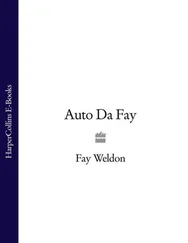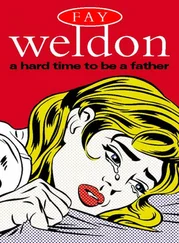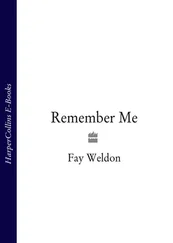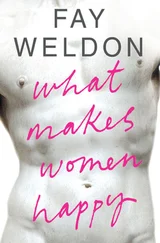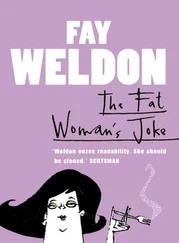About the Publisher Конец ознакомительного фрагмента. Текст предоставлен ООО «ЛитРес». Прочитайте эту книгу целиком, купив полную легальную версию на ЛитРес. Безопасно оплатить книгу можно банковской картой Visa, MasterCard, Maestro, со счета мобильного телефона, с платежного терминала, в салоне МТС или Связной, через PayPal, WebMoney, Яндекс.Деньги, QIWI Кошелек, бонусными картами или другим удобным Вам способом.
A new Britain indeed: a Third Way, a great sea change in how we see ourselves. Fifty-eight million people, in fact, in profound culture shock. To determine how we live now, first determine how we lived then.
Pity a Poor Government
Behind the Rural Myth
Mothers, Who Needs ’Em?
The Feminisation of Politics
What This Country Needs Is:
Take the Toys from the Boys
From The Scotsman Millennium Lecture, delivered at the Edinburgh Book Festival, summer, 1998.
Adam and Eve and Tony Blair. The beginning and the end: or at any rate as far as we’ve got at the close of the fourth millennium since the Garden of Eden, when we all began, and the second since Jesus, when we started counting.
But these things may be circular; the end may yet turn into a new beginning. We now have a New Adam and a New Eve (if the same old Cain and Abel kids). God is no longer seen to exist, to bar the door with flaming sword. The bearded patriarch has been replaced by Mother-Goddess Nature. The happy couple walk again in paradise. The Garden, mind you, is pretty battered these days, it lacks its ozone layer, it is buffeted by the storms of global warming and so on. But at least the serpents of hunger, poverty and ignorance have slid off into the undergrowth, driven out over the centuries by marauding parties of the Great and Good.
Pity any poor government as it tries to keep up with unprecedented social change and the collapse of the old ways of living, dealing as it has to with an electorate still immersed in the old myths of what we are and how we hope to be, obliged to piddle about with Ministries for Women when what we need is a Ministry for Human Happiness. Changes in the female condition, however welcome, have had their effect on men and children too. Takes two to make the next one – and our evolution as a species, over too many millennia to count, suggests to us most forcibly that we are all inextricably interlinked, and if we try too hard to escape our conditioning, fly too obstinately in the face of our human and gender nature, we will be very miserable indeed. But what are we, if we don’t try? Let government admit a paradox, and help us all pursue our happiness, not just some of us our rights.
The young couple, the New Adam, the New Eve – he beginning to feel the effect of the lack of a rib, she taking over the gardening: their life expectancy now in the late seventies (him) and the early eighties (her) – have in returning to the Garden been returned to innocence: they walk about its glories in a daze. Innocence may not be enough if they are to remain, this time round, in the state of grace we want for them. Let them have some information.
I can’t cover a thousand years of gender politics but I can just about manage the last hundred years. The great advantage of being no longer young is that what to many people is dead history to me is living history, if I add in my mother, that is, who is alive and well and thinking and ninety-one. Since she was there for the decades I was not, between us we can set ourselves up as experts on the century.
I spent my early years in New Zealand, where the education was based upon ‘the Scottish system’. By which is meant that the young are not trusted with independent judgement, and no-one asks ‘what are your feelings about this?’ because your feelings are irrelevant. We learned what others older and wiser than ourselves had to say. We quoted authority if we wanted to prove a point. (In those pre-television days it was possible to take authority seriously. Put Locke, Berkeley and Hume on a late night chat show and you’d soon lose respect for them.) In 1946, my family, mother, grandmother, sister and myself, took the first boat ‘home’ after the war, and I went to a girls’ grammar school in London which expected its pupils to join the great and the good and work for the betterment of mankind. Many of us did. And later I went to the University of St Andrews, where I developed the art of rhetoric. Thus: you make your case, overstating it dramatically. Your opponent does the same. In response you reduce your argument a little: so does he. Thus a consensus, or at any rate a moderation of extreme views can be reached. Except of course if you’re arguing with someone who doesn’t understand the rules of engagement, and they usually don’t down South, you’re in trouble. Others conclude you’re hopelessly argumentative, given to rash overstatement, and would be well advised to stick to writing fiction, which as everyone knows, and as my mother pointed out to me long ago, is all lies and exaggeration anyway. You make a statement: they leave the room.
It was my Professor in moral philosophy at St Andrews who, when obliged by new university directives to accept females into his class – there were three of us – declined to mark our essays or acknowledge our presence, other than from time to time to remark, with a toss of the bald head, that females were not capable of moral decision or rational judgement. The only conclusion we could come to was that we were not female. That was in the early fifties, of course, and in those days to be denied ‘moral decision’ and ‘rational judgement’ was meant as an insult. Today a young person might well interpret the remark as a compliment. Feeling takes such precedence over morality and judgement, emotional response is declared to remain so much the woman’s prerogative, that it is the young men in the class who would be the ones to feel inadequate, and long to be women, just as we then longed to be men, to be allowed out after our begrudged education into the great wide world of adventure, excitement, earning, and freedom. Not into the domesticity which seemed to be our fate, both as natural born women and because it was so difficult for a woman to earn anything other than pin money. And today’s young man might well find himself the solitary male in a Gender Studies Class expected to stay quiet when the female lecturer tells the class that all men are potential rapists.
When my mother observes, as she did the other day, that when she was a girl only working women wore blouses and skirts, and that a lady would be horrified to be seen in anything but a dress, and equally horrified if a working woman turned up wearing something in one piece, you realise how profoundly and invisibly and silently things can change, and how easy it is to forget the kind of society we once were, as we try to make sense of the one we have now. You understand why the office liked you always to wear a suit to work, and wearing a dress made them, and you, feel uneasy, and why the BBC got so upset in the sixties if you wore trousers to a meeting.
Why, I asked my mother, if there are only six million more people in this country than there were in 1950, and this is only a ten percent increase in the total population, is it so difficult to get along Oxford Street for the crowds? And why is it that the simple purchase of a pair of shoes these days takes so long and requires a lengthy session with a crashing computer? To which she replied ‘Because once upon a time everyone used to stay home, you silly girl. They were poor. Their one pair of shoes was wet and they couldn’t go out until they were dry. They didn’t even aim to have two pairs. No-one ate in restaurants, bread and cheese was the staple diet and you got them from the corner shop and paid cash, and if you didn’t have cash you went without. And that was in the fifties – things were twice as quiet when I was a child.’
Читать дальше




